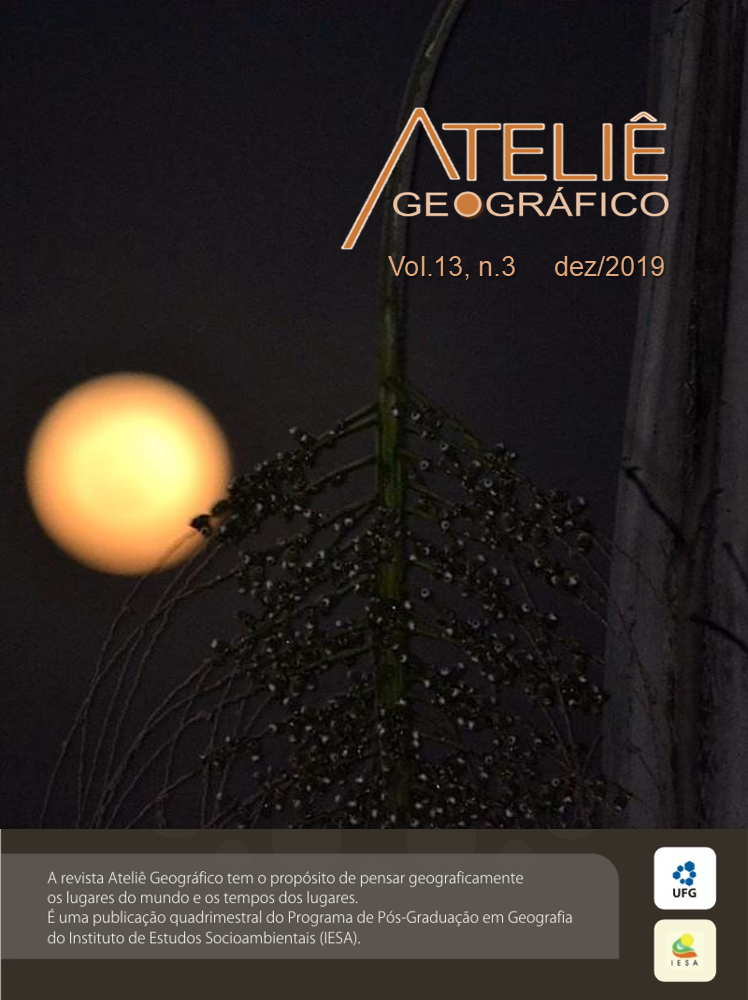The salinity of the soils in the conception of the quilombola community of Cupira - Santa Maria da Boa vista - Pernambuco
DOI:
https://doi.org/10.5216/ag.v13i3.53381Abstract
The present study sought to analyze the interrelation between the practical knowledges of the farmers of the quilombola community of Cupira, semiarid of the state of Pernambuco, with the process of salinity of the soils. For the development of this study, the ethnopedology, elements of social cartography and the chemical analysis of soil samples, collected on farmers' indication, were used as a methodological basis. The results indicate that most farmers recognize easily the occurrence of the salinity process, as well, as impacts on soil structure in the agricultural production. It is concluded that the farmers present practical knowledges to recognize the process of salinity and also, the practices that collaborate for the development of the accumulation of salts, nevertheless, it was verified the need for the sum of technical scientific knowledge and the aid of public policies to solve and avoid problems arising from salinity.
Keywords: Degradation of the soils; Ethnopedology; Traditional community.
Downloads
Downloads
Published
How to Cite
Issue
Section
License
Autores que publicam nesta revista concordam com os seguintes termos:- Autores mantém os direitos autorais e concedem à revista o direito de primeira publicação, com o trabalho simultaneamente licenciado sob a Licença Creative Commons Attribution que permite o compartilhamento do trabalho com reconhecimento da autoria e publicação inicial nesta revista.
- Os autores não serão remunerados pela publicação de trabalhos na Revista Ateliê Geográfico. Além disso, os conteúdos publicados são de inteira e exclusiva responsabilidade de seus autores, ainda que reservado aos editores o direito de proceder a ajustes textuais e de adequação às normas da publicação.
- Autores têm permissão e são estimulados a divulgar seu trabalho online (ex.: em repositórios institucionais ou na sua página pessoal), já que isso pode gerar alterações produtivas, bem como aumentar o impacto e a citação do trabalho publicado (Veja O Efeito do Acesso Livre).


